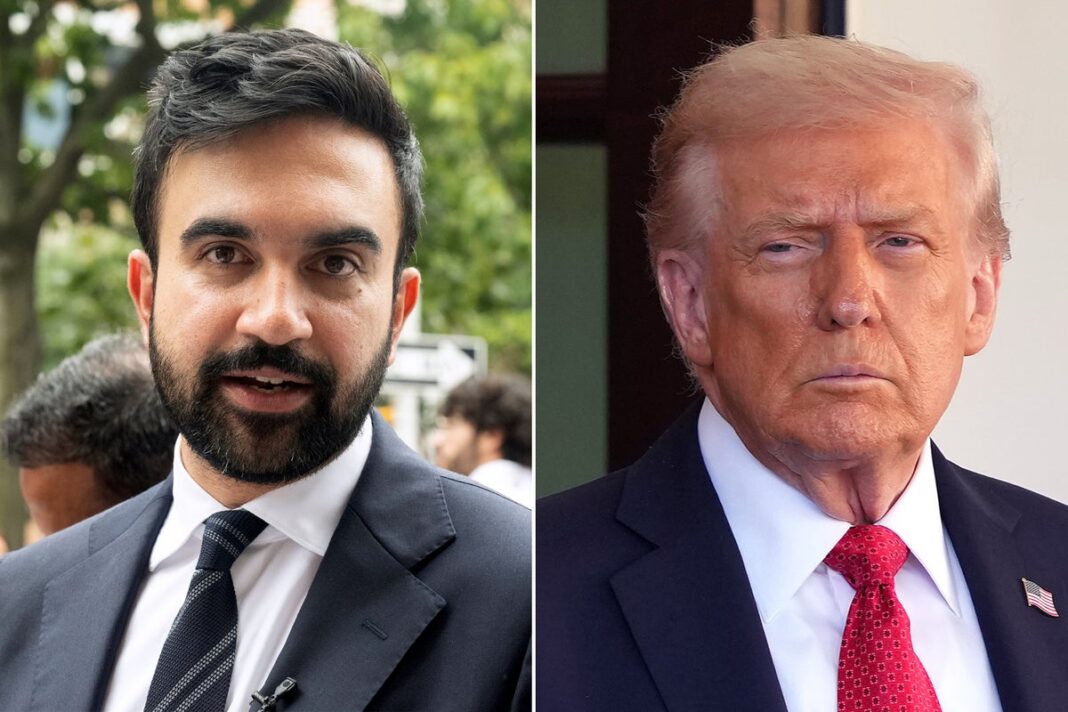Tensions Rise: Trump’s Meeting with NYC Mayor-elect Zohran Mamdani
In a significant shift in political dynamics, President Donald Trump is set to meet with New York City Mayor-elect Zohran Mamdani at the Oval Office this Friday. This meeting comes after months of fierce exchanges, as both figures have publicly criticized each other. Trump has labeled Mamdani a “Communist,” while Mamdani has condemned the Trump administration as “authoritarian.”
The Backstory of Conflict
The antagonism between the two leaders began to escalate when Trump took to social media, expressing his disdain for Mamdani’s approach to governance and his self-proclaimed democratic socialist ideals. Trump’s social media platform became a battleground for insults when he referred to Mamdani as the “Communist Mayor of New York City” and expressed skepticism about the city’s prospects under his leadership.
In an ironic twist, Trump voiced that funding for New York City would be “highly unlikely” except for the minimum necessary, essentially wielding federal dollars as leverage against the new mayor.
Mamdani’s Response
Mamdani, who has embraced his democratic socialist identity, has not shied away from criticizing Trump’s hardline policies, especially around issues like immigration and civil liberties. In a bold victory speech earlier this month, he quipped directly at Trump, stating, “I’ve got four words for you: turn the volume up,” indicating his readiness to confront Trump directly.
In the lead-up to their meeting, Mamdani expressed a willingness to collaborate with anyone who is willing to improve the lives of New Yorkers. His stance signals a desire to prioritize dialogue over division, even with a figure as polarizing as Trump.
The Climate of Political Tension
The backdrop to their upcoming meeting is filled with heightened political tension. Just days ago, Trump made headlines by calling for the arrest of several Democratic lawmakers for what he termed “seditious behavior.” He even suggested that their actions, which included encouraging military personnel to uphold the Constitution against illegal orders, were “punishable by death.”
Concerns Over Political Violence
Democrats and some lawmakers have voiced grave concerns about Trump’s incendiary rhetoric. Fears are growing that his statements could inspire political violence, reminiscent of the January 6 Capitol riots. Senator Mark Kelly of Arizona, one of the targeted lawmakers, recalled his wife’s near-fatal experience during an incident of political violence and asserted that “words have consequences, especially when they come from the President of the United States.”
Senate Minority Leader Chuck Schumer has echoed these sentiments, emphasizing the need for increased security for lawmakers targeted by Trump’s remarks. Schumer referred to Trump’s language as “lighting a match in a country soaked with political gasoline,” indicating the volatile atmosphere that surrounds these discussions.
Legal Implications of Trump’s Claims
Trump’s allegations of “seditious behavior” raise important questions about legality. While he asserts that calling for military defiance constitutes a grave offense, experts argue that U.S. law does not support his claims. Legally, “seditious conspiracy” pertains to inciting violence to oppose the government’s authority, a charge that would likely not apply to the statements made by the lawmakers in question.
According to the Uniform Code of Military Justice, service members are required to obey lawful orders, but this does not extend to orders that violate the law or human rights. Therefore, urging the military to resist unlawful action may in fact fall within their constitutional rights.
Eric Trump Weighs In
The meeting has garnered attention not just from political figures but also from the Trump family. Eric Trump, the president’s son, remarked that his father excels in such encounters, suggesting that Mamdani may not fare well in the Oval Office setting. Eric’s comments paint a picture of confidence in Trump’s ability to dominate the dialogue, regardless of the contentious history with Mamdani.
Facing Public Scrutiny
Both leaders find themselves under a microscope as they prepare for this meeting. Observers are particularly interested in how they will navigate their stark differences and whether any common ground can be established amid the escalating rhetoric and accusations.
Mamdani has made it clear that he aims to represent the diverse voices of New Yorkers, prioritizing affordability and accessibility. Meanwhile, Trump’s history of leveraging conflict for political gain adds a layer of uncertainty to how this meeting will unfold.
In a political landscape fraught with division, the outcomes of Friday’s meeting could have lasting implications, not only for the future of New York City but also for the broader national discourse on governance and cooperation.



